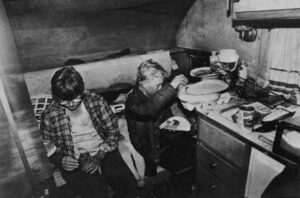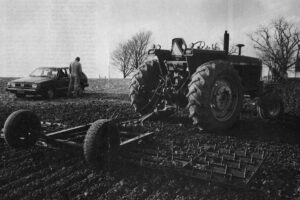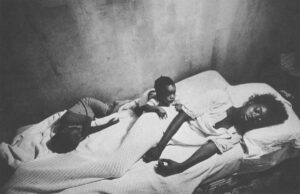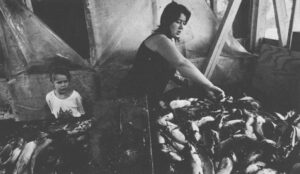California is the homeless capital of America. Ventura County–an affluent, suburban area, next to Los Angeles County–has between three and five thousand homeless.
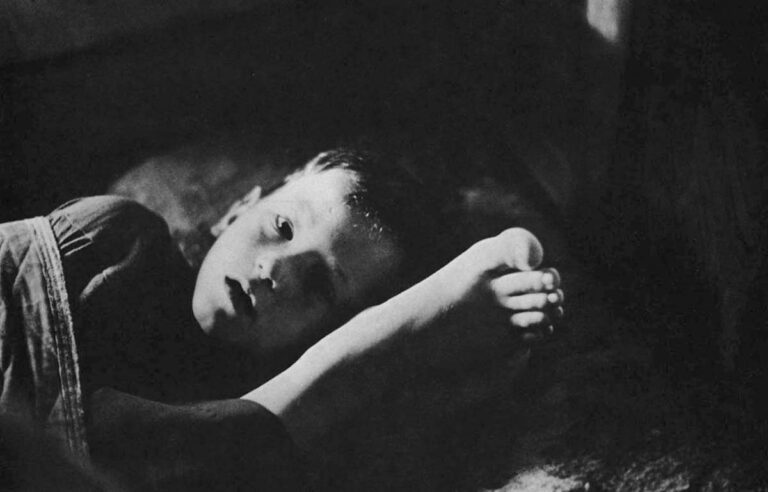
According to a survey by the Ventura County Coalition for the Homeless, one-third of the homeless are children under age 13. 17% are under 5. Half the homeless are families. 20% have jobs. 40% are unemployed (half lost jobs in the last six months). Only 22% are on welfare. Most are not drifters. Two-thirds lived in the county for at least a year. 88% lost their homes for financial reasons.
Once homeless, it is difficult to recover. To move into a home, first and last months’ rent plus a security deposit is required.
Imagine yourself homeless. How do you save money? Without proper cooking facilities, you spend more on food. Motels are expensive. So you sleep in your car. You need to find a job. But how do you look for work if you can’t shower? You apply for welfare and find out you need a mailing address. Do you say you are living in a car? Welfare might take away your kids. Do you lie and give a friend’s address? If they find out they will deny your application. How about a post office box? The Postal Service requires a fixed address. What about temporary shelter? There are few shelters for families. If you can get in, you can only stay a few weeks. Does your family have problems? Do you need job retraining or counseling? You will be lucky if you get help.
This winter, I spent six weeks photographing homeless families. I found children living in cars, in churches, on skid row, in shelters, in motels, and in state parks.
Mcgrath State Park, Ventura, California
McGrath State Park, located on the beach just outside the city of Ventura is nicer than most. McGrath costs $8 a day. It has shower facilities, but no electricity at the campsites. Propane is used for cooking. Families are allowed to camp for 14 days-then must leave for 24 hours.
Twelve families and their 35 children live more or less permanently at McGrath. Eight of the families are employed. (Jobs held include welder, shipping clerk, night manager at a fast food restaurant, crane operator on an oil rig, and construction laborer.) Two are recently unemployed, two are on welfare.
All but one of the families have trailers now, although most lived in cars and stayed in shelters when first homeless. (Some, like the Wallaces were given no-interest trailer loans by HABITAT, a Christian group.)
Most expect to be here for a long time. After camper payments, park rent, food, gas and clothing, there is little left to save for permanent housing.
For now, people are coping. But this summer, with the influx of vacationers, these families and their children will have to leave the park.
McGrath State Park, Ventura, California: The Wallace Family
“This is not an easy life on the kids. My children have changed schools three times. The other kids at school call them hobos.”
–Marlene Wallace
The Wallace family has been homeless for two years. Three adults and five children live in a 6-by-13 foot trailer at McGrath State Park in Ventura, California.
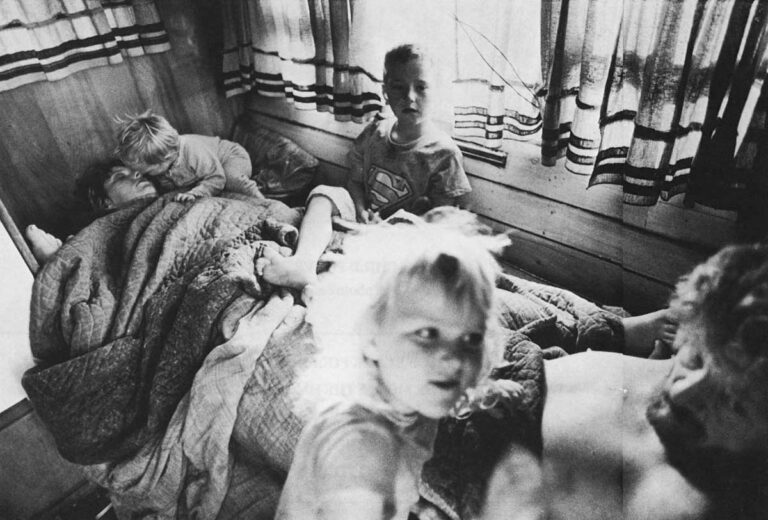
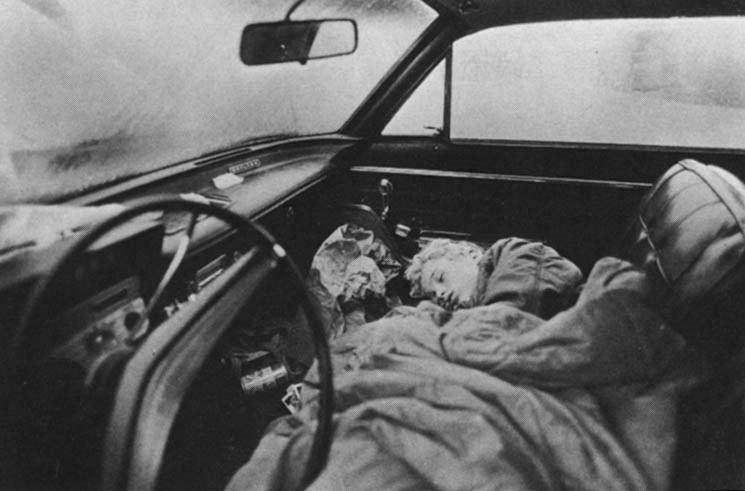
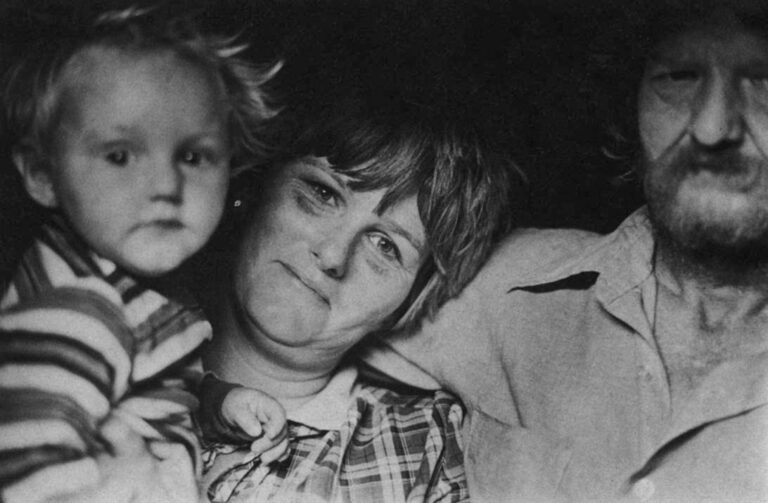
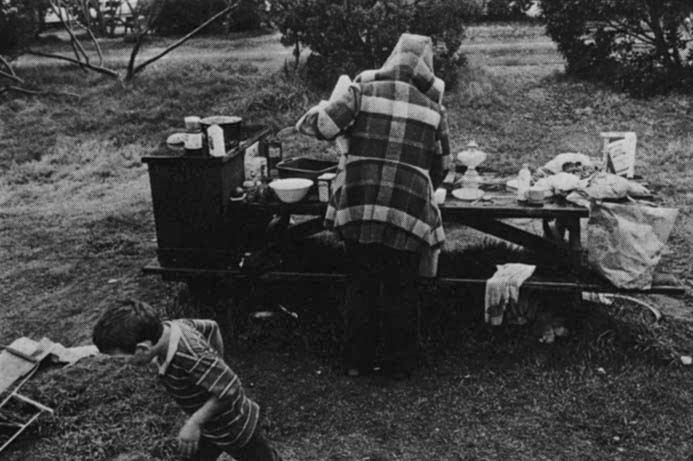
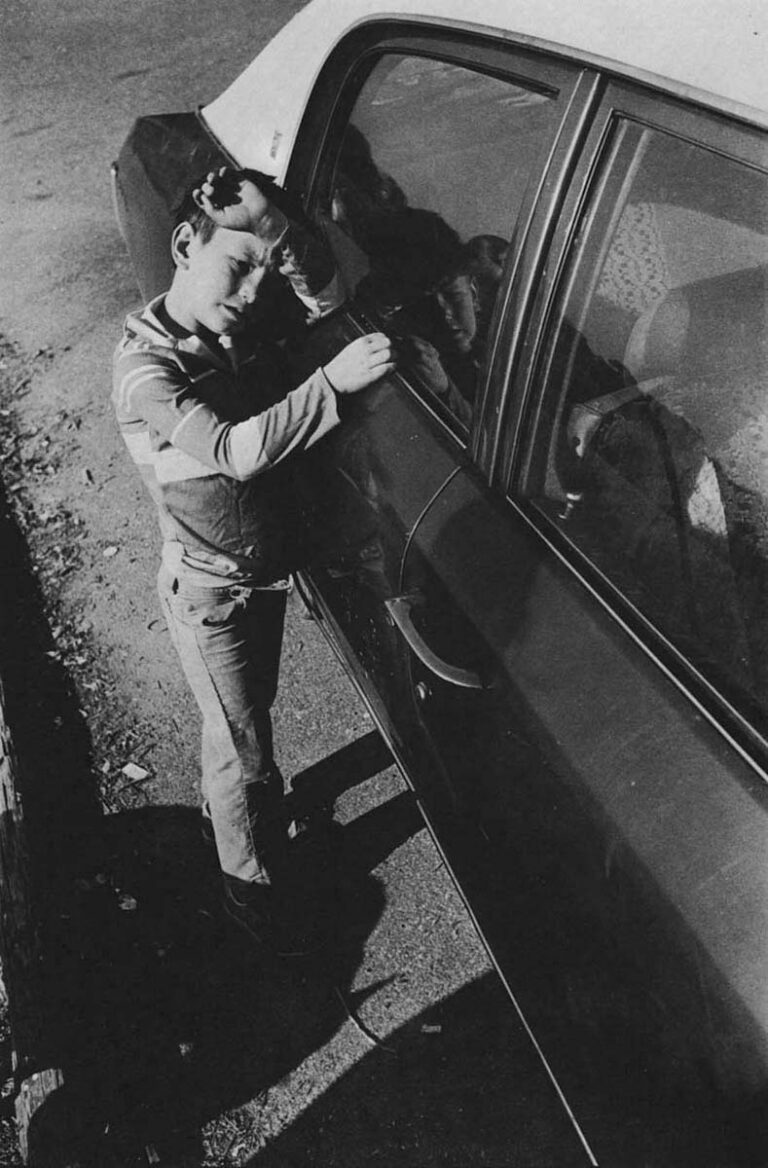
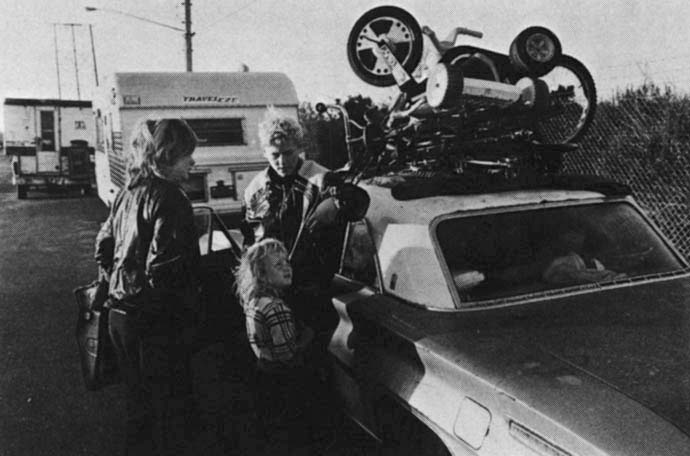
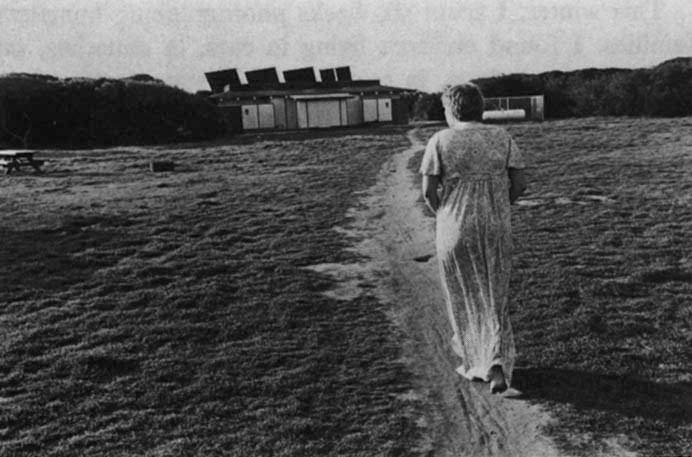
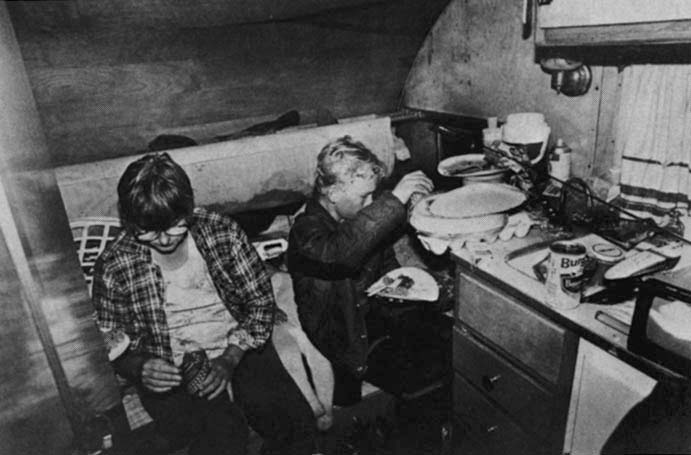
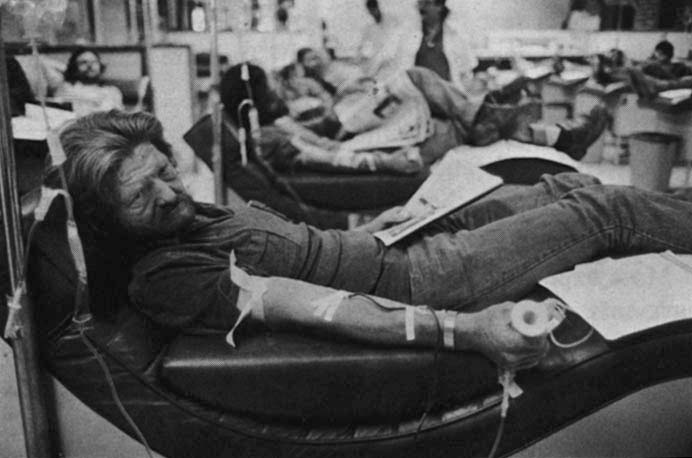
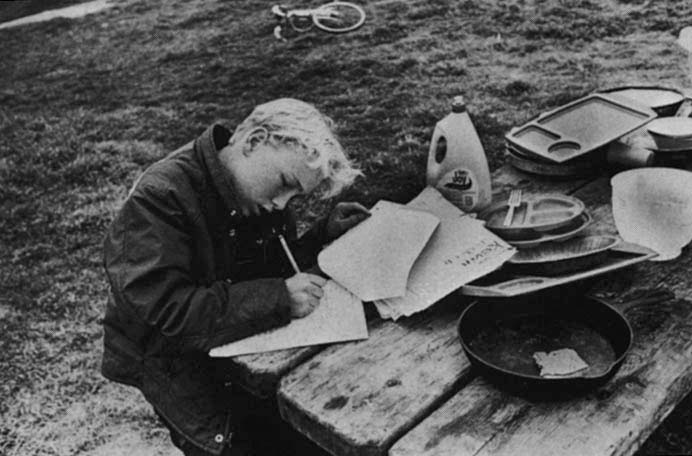
Breakfast Conversation.
“White Trash. We’re trash.”
“Don’t say that! Where did you hear that?”
“The kids at school called me that.”
“You’re not trash if you own something. We have this trailer. Just because we don’t have a lot–we’re not trash.”
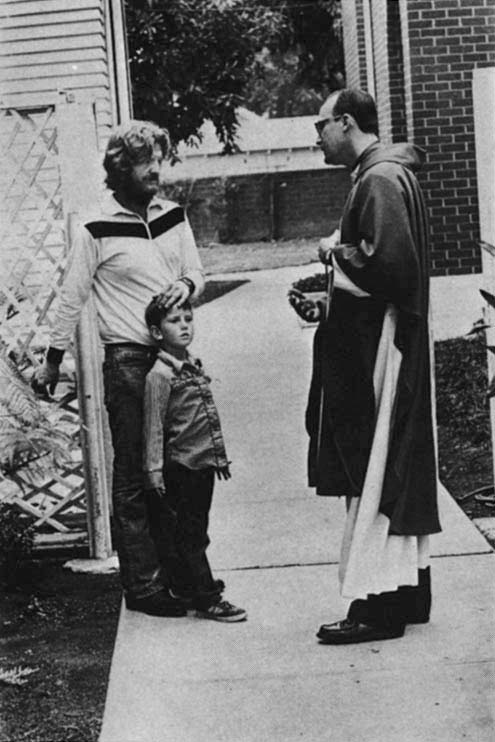
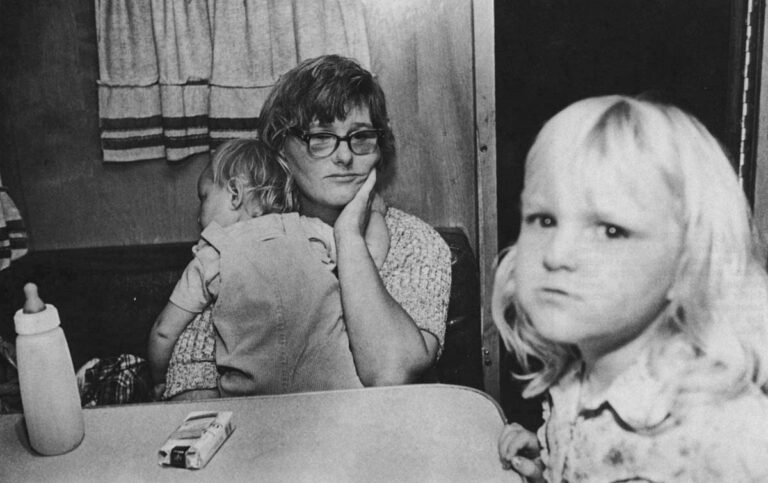
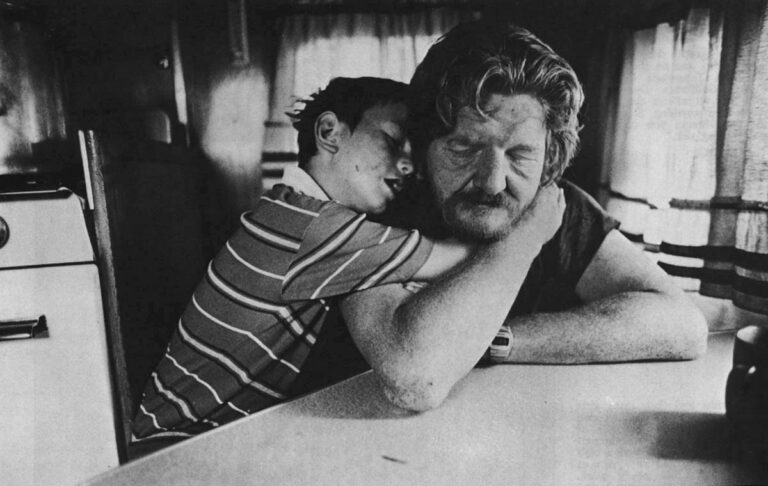
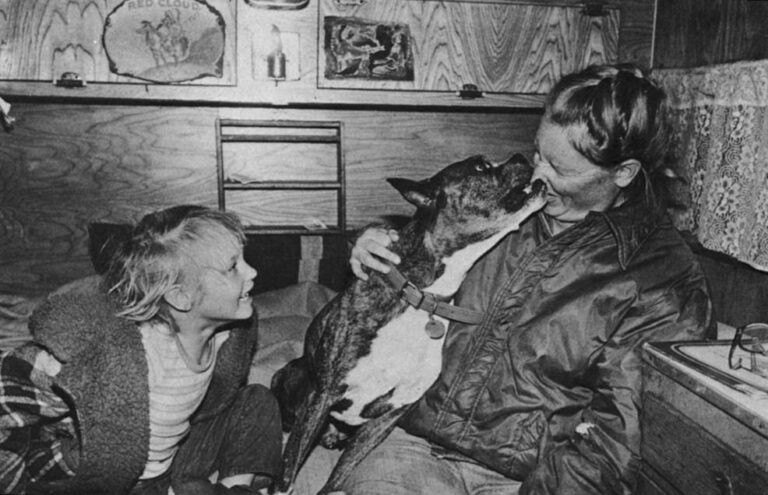
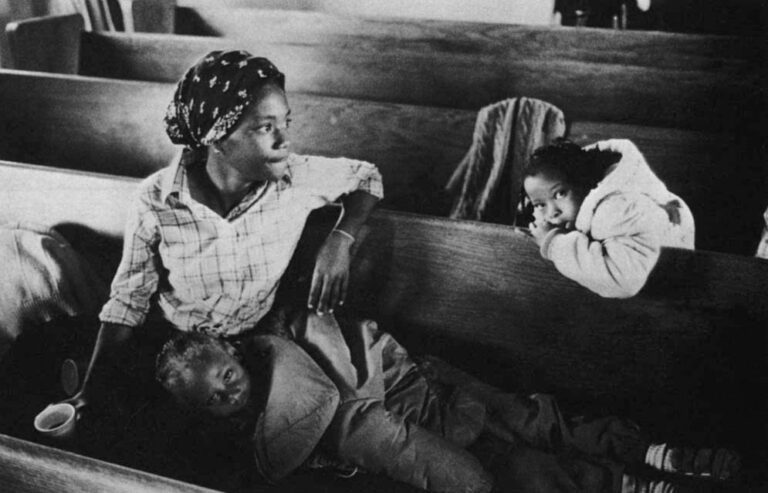
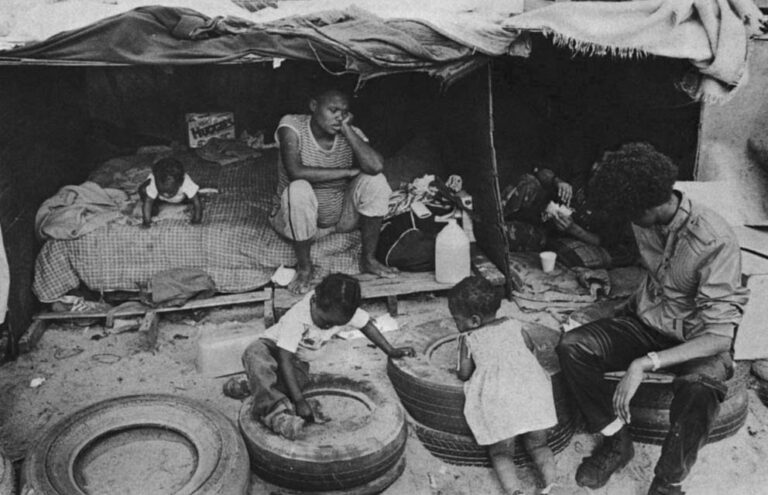
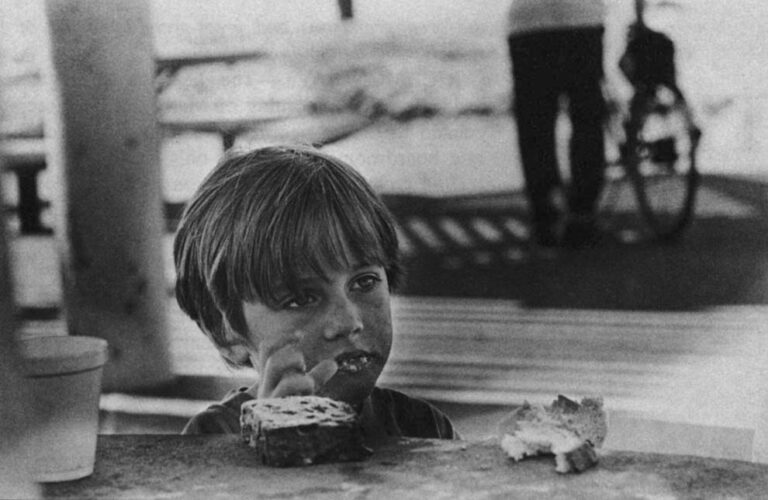
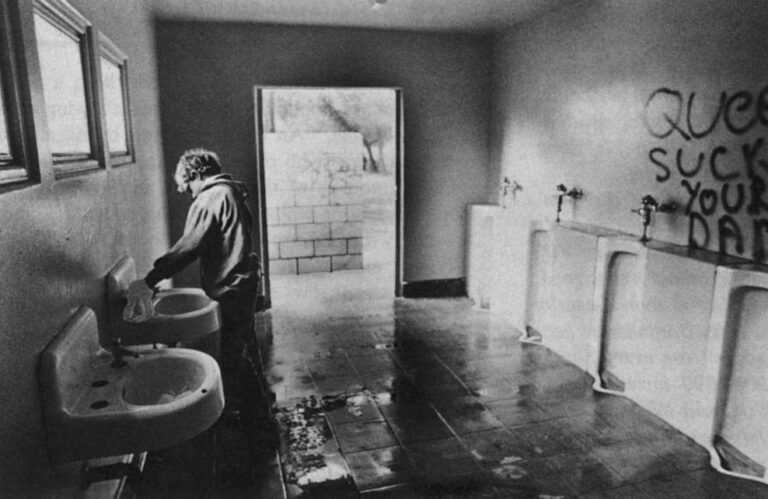
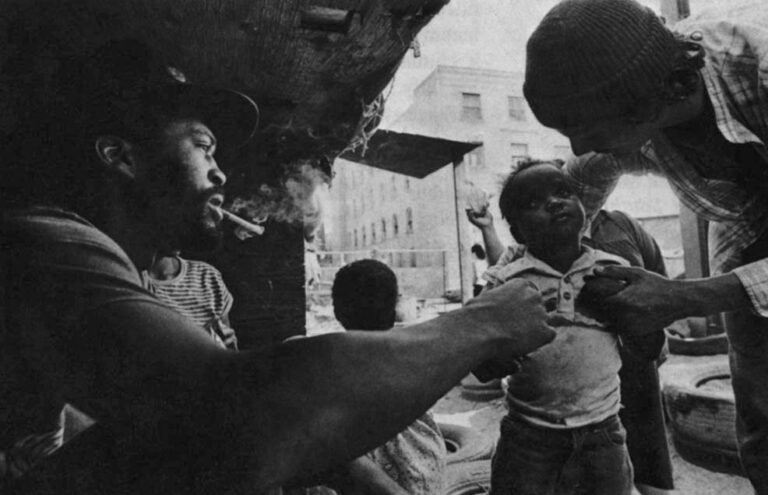
©1985 Stephen Shames
Stephen Shames, a photographer with Visions photo agency, is photographing child poverty in America.

